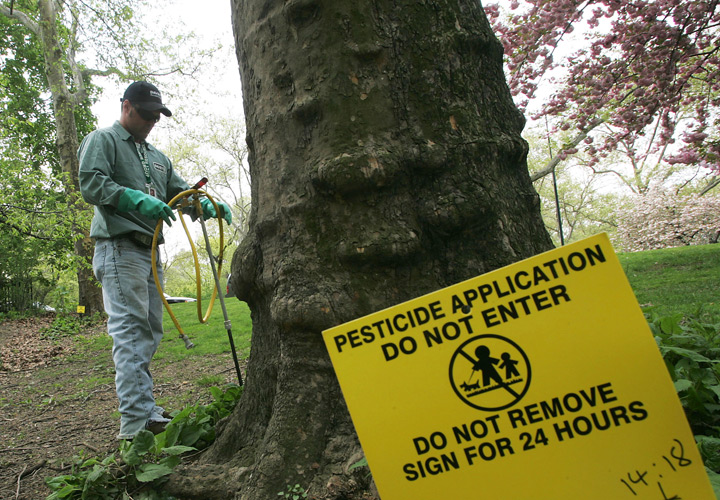With planting season drawing near, pesticide use was the focal point at an event in Edmonton this weekend, hosted by the Pesticide Free Alberta Coalition.

Dr. Meg Sears, an Ottawa-based biochemical engineer, was the keynote speaker. She’s considered an expert on pesticide policy and its health effects. Among her work, Sears has been researching environmental contributors to cancer and other diseases at the Ottawa Hospital Research Institute.
READ MORE: 2018’s list of fruits and vegetables with the most pesticides
Saturday’s forum aimed to start conversations about the history of pesticide use and whether Edmontonians need to be concerned about its use.
“It’s a case of making choices to protect the health of our children as well as to achieve what we want in the environment.”
A point of discussion in the conference was the use of the toxic ingredient Chlorpyrifos.
Two years ago, Edmonton discontinued the mosquito pesticide Dursban but still allowed Pyrate, a substance that contains Chlorpyrifos as well.
READ MORE: Nearly 30% of food products contain residue of pesticide glyphosate: report
In its research, Pesticide Free Edmonton said it found that Edmonton is the last municipality in Canada to use Chlorpyrifos for mosquito control.
“It’s more toxic to the human nervous system than some commonly used chemicals in other parts of Canada,” Sears said. “In fact, this whole strategy in other parts, [such as] Ontario, would only be used if there were confirmed cases of West Nile virus in mosquitos.”
READ MORE: 2 widely used pesticides toxic to songbirds: research
The city’s pest management practice hasn’t been updated since it was developed in 2004.
An updated policy will come back to city council in June 2019 after consultations.


Comments